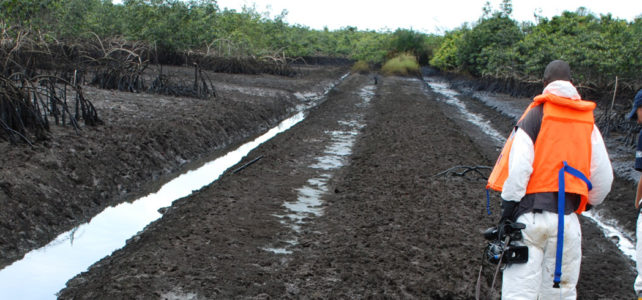
Braxton Mitchell has worked with the Amish for 30 years as co-director of the Amish Research Clinic in Lancaster. He can say for a fact that autism exists in the community, contrary to President Donald J. Trump’s statement Monday that the Amish have “essentially no autism.”
Trump’s remarks perpetuate a false belief that autism rates are lower among the Amish, a misconception that Mitchell says resurfaces periodically. The reality, he says, is that there is no good data on rates of the neurological disorder in the Amish.
But he knows firsthand from working with Amish people in the Lancaster area that they, too, struggle with autism.
“There have not been any good studies to ascertain what the frequency is, so we don’t really know, but anecdotally, yes, there is autism in the Amish,” said Mitchell, a genetic epidemiologist.
He did a literature search within the last six months, and found only one study that did a systematic assessment of autism in the Amish.
The study screened 1,899 Amish children across two communities in Holmes County, Ohio, and Elkhart-Lagrange County, Indiana, according to preliminary data presented at the International Meeting for Autism Research in 2010. They found a rate of approximately 1 in 271 children.
That was lower than the general population’s estimated prevalence of 1 in 91 at the time; however, the difference could have been due to caregivers answering screening questions differently due to “cultural norms and customs,” the paper noted.
“It certainly dispels the myth that there is no autism in the Amish, at the very least,” Mitchell said.
Autism may be underdiagnosed among the Amish because they tend to handle health issues internally, within their communities, and seek professional medical care only for pressing problems, Mitchell said.
Some may not consider behavioral health issues such as autism an emergency medical concern. Many also do not have health insurance, which means they pay out of pocket any time they go to the doctor.
He added that it’s hard to compare the study’s prevalence rate with the general population because the study only looked at Amish children and did not use the same autism screening tool to assess the general population.
That would be like giving different tests to students in a class and then trying to rank them by their scores. The questions should be standardized to ensure an accurate comparison.
“What you would really need to do is administer that same questionnaire, maybe to the general population, and see what you get,” Mitchell said.
Therefore, the data isn’t enough proof of there being lower rates of autism.
Administration zeros in on autism
At a White House news conference on Monday, the Trump administration announced sweeping actions to address rising rates of autism. Without presenting scientific proof, Trump said that Tylenol should not be used during pregnancy, claiming that it increases the risk of the child developing autism.
Medical societies and a Drexel scientist who conducted a large-scale study on the topic disagreed.
Trump also implied that vaccines and medications could be causes of autism.
“There are certain groups of people that don’t take vaccines and don’t take any pills, that have no autism,” Trump said.
“Does that tell you something?” he added.
He pointed to the Amish community as an example.
But many Amish people do get vaccinated and use Tylenol, Mitchell said.
Amish people also aren’t immune to disease. They have higher rates of rare genetic disorders due to their community descending from only a few hundred settlers and being largely isolated.
The Clinic for Special Children in Lancaster was specifically founded in 1989 to help Amish and Mennonite people with these diseases, some of the most notable being a type of dwarfism called Ellis-van Creveld syndrome and metabolic disorders.
The Clinic for Special Children declined to comment on the topic of autism in the community, stating they focus on specific, rare genetic disorders.
A 2009 case report found a genetic defect that causes autism and epilepsy in a cohort of Amish children, providing evidence of a hereditary source of autism in the community.
“That’s something that could be very meaningful,” Mitchell said.
“Genetics plays a big role in a lot of neurodevelopmental disorders, but specifically autism,” he added.
Steven Nolt, an Elizabethtown College professor who has researched and written about the Amish extensively, said he’s seen anecdotal evidence of autism in the Amish, including parents writing about their children with autism in Amish publications.
But he’s never seen robust research on the total number of children with autism, making it impossible to calculate a rate.
“I have never seen such numbers and I doubt they exist,” he wrote in an email, noting that the 2010 study was not large enough to be generalizable.



